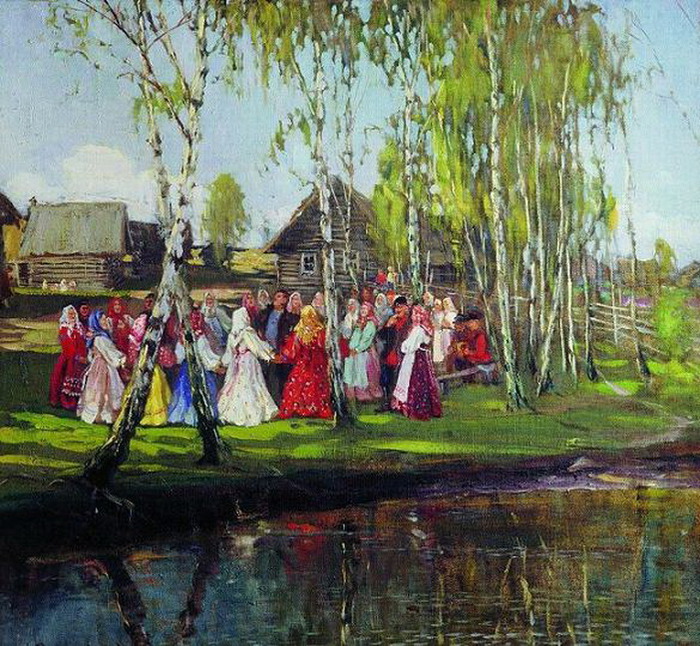Иньва - 2008 - Бела ниточка

Etno-project "In'va" appeared in 2005. Name of the project comes from the name of the river flowing through the Perm Region. From the Komi-Perm to Russian this word has several translations: women's water, the female river, women's tears, or the divine river. In early June group released their first album. This CD, titled "White fibril" (or "White thread"), contains 15 songs from Regions of Perm, Petersburg, Bryansk, Novgorod, Smolensk, Pskov and Karelia, in the style of traditional Russian polyphony. Leader of group Irina Pyzh'yanova says: "We have identified a concept album and the whole project as an attempt to unite what has come from the depths of time and feelings and condition that speak in us. Living life here and now - in a modern space - we get experience of the past through the songs. You can call the album an attempt to connect the outlook of urban people and the traditional perception of the world. Hence the name "White fibril". This is a simple image, but it is very capacious. It is part of the traditional female world, because it is associated with needlework. However, for us the image of the thread is filled with deep symbolic meaning: it is a continuous relationship between time, past and present. Living link. On this thread a lot of memory nodes. We found only some of them..."









